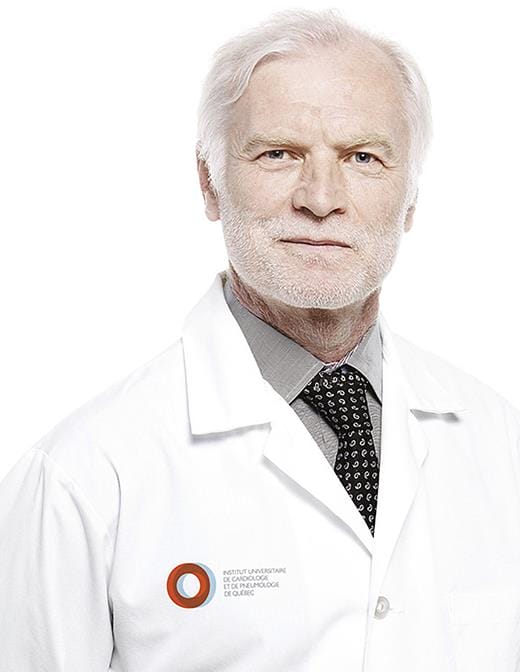As posted in Karger
It is with profound grief and deep fondness that we gather to memorialize Dr. Denis Richard, who passed away on Saturday, December 9, 2023. His loss leaves an irreplaceable void in the realms of academia and in the hearts of all who had the privilege of knowing him.
Denis received his Ph.D. in Physiology from Université Laval (Canada) in 1982, under the supervision of Professor Jacques LeBlanc. He then completed his postdoctoral fellowship with Dr. Paul Trayhurn at the University of Cambridge (England) before being recruited at Université Laval as an Assistant Professor of Physiology in 1984. He became Professor of Medicine at Université Laval in 1993 and held the esteemed Research Chair in Obesity from 1999 until his passing.
Curious, creative, collaborative, perseverant, and passionate are only a few of the qualities bared by this gifted physiologist who made his mark in the field of the central control of energy balance. Denis was a pioneer in the neurobiology of obesity. He rapidly understood that the brain played a critical role in regulating metabolism. He was among the first to direct his investigations into the understanding of the role of the central nervous system in the pathophysiology of obesity, even when this disease was not as prevalent and worrying as it is today. Throughout his career, he worked on elucidating the intricate mechanisms governing metabolic responses to various physiological stimuli. His contributions were broad-ranging and multidisciplinary, encompassing investigations into the metabolic benefits of exercise, autonomic control of thermogenesis, uncoupling proteins, brain activation in response to physiological stress, effects of pharmacological agents on energy balance, neurobiological control of food intake, and more. Denis never tried to overhype any of his findings or to convey that it was a final mechanism to explain it all. His conclusions were based on physiological relevance, his contributions always aspiring to develop new hypotheses and research directions. His work continues to serve as a cornerstone in the fields of physiology and neuroendocrinology.
Denis was always ahead of his time, and he investigated topics often decades before they became scientific trends. He knew where science needed to go, as evidenced by the dozens of international symposia he organized over time, which featured emerging themes including “The neurobiology of obesity” in 2005, “Obesity in a modern world: When pleasure meets homeostasis” in 2008, “Rediscovering brown adipose tissue” in 2009, and “Targeting the gut to treat obesity and its metabolic comorbidities” in 2014. Sadly, he was unable to chair his last signature symposium in November 2023, which was once again a resounding success thanks to his unparalleled leadership, vision, and mentorship.
Denis was a Mentor with a capital M, a born visionary, and an architect of the future. As a man of few words but of many thoughts, Denis would measure every word and tackle any problem, decisive and at his best upon moving into action. No wall could stop him from moving forward when he had an idea. Rumor had it in 1999 that the research center of Laval Hospital (which became the Quebec Heart and Lung Institute) was going to be closed definitively. Denis decided to take on the challenge of building an innovative and globally recognized research center. “Give me 4 years,” he said. History would prove him right since this research center grew from 268 to 1,143 people from 1999 to 2021. Through four phases of expansion for which Denis used all possible strategies to secure financing, he will have created 4,100 m2 dedicated to research in cardiology, pulmonology, and obesity. Denis was also one of the three founders of the research network on Cardiometabolic health, Diabetes and Obesity (CMDO) which gathers over 1,200 researchers across the province of Quebec and pursues Denis’ vision of research excellence.
Denis was a fellow of the Canadian Academy of Health Sciences and received several honors. This includes the Armand-Frappier Award (Prix du Québec, 2016), the highest distinction given by the Quebec government to a person who has led a career in research, contributed to the development of a research institution and, as a result, has been able to encourage the next generation of scientists and arouse the population’s interest in science and technology. He also received the Jonas Salk Award (March of Dimes Canada, 2016), given to a Canadian scientist who has made a novel and outstanding contribution in science or medicine to prevent, alleviate, or eliminate a physical disability.
On a personal note, Denis was a very humble, joyful, and generous person, who would always make sure to shine the light on those he believed in, rather than on himself. We surely underestimate his contributions to science and society since many of his realizations are alive through the people he trained, mentored, and loved. We can say with conviction that Denis is at the source of our own successes and those of many. He will be missed dearly, but his legacy to science and society will live on and continue to grow.






